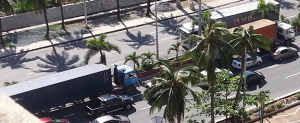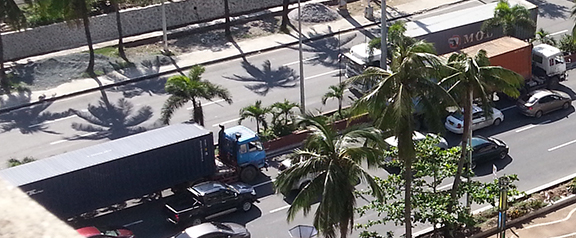 The Philippines placed 95th in the World Bank’s 2015 global ranking of countries in terms of ease of doing business among 189 economies, down nine notches from last year’s revised 86th place.
The Philippines placed 95th in the World Bank’s 2015 global ranking of countries in terms of ease of doing business among 189 economies, down nine notches from last year’s revised 86th place.
The 2014 report originally ranked the Philippines in the 108th spot, making the country the most improved economy in Asia because of a 30-point jump. A change in methodology later resulted in a revised and much higher ranking of 86th place.
In the World Bank Doing Business 2015: Going Beyond Efficiency report, Singapore remains the best place to do business in, followed by New Zealand, Hong Kong, Denmark, South Korea, Norway, the United States, United Kingdom, Finland and Australia.
Among the 10-member Association of Southeast Asian Nations, the Philippines now ranks fifth, ahead of Brunei Darussalam (101), Indonesia (114), Cambodia (135), Lao PDR ( 148) and Myanmar (177), but behind Singapore (1), Malaysia (18), Thailand (26), and Vietnam (78).
The National Competitiveness Council, which initiates and monitors ease of doing business in the Philippines, said the country still “has much ground to cover if it aims to be at par with the most business-friendly economies in the world.”
Effect of truck ban, higher import/export cost
The 2015 World Bank report noted the Philippines’ drop in ranking in the trading across borders indicator to 65th place from 53rd previously “because of a new city ordinance restricting truck traffic in Manila.”
Last February 24, the City of Manila started implementing a truck ban. The ordinance, which was indefinitely lifted on September 13, triggered heavy congestion at Manila ports and disrupted the country’s supply chain.
The cost to export one container from the Philippines – one of the criteria for trading across borders indicator – also jumped 29.06% to US$755 from $585 in 2014.
The cost of imports likewise grew 38.64% to $915 from $660 last year.
The total number of documents needed for Philippine export transactions (six) and import transactions (seven) remained the same in 2015 from 2014.
The time it took to export also remained the same (15 days) in 2015 but the time it took to import worsened by one day to 15 from 14 days in 2014.
Aside from the trading across borders indicator, the other regulations World Bank measures to determine the ease of doing business involve starting a business, dealing with construction permits, getting electricity, registering property, getting credit, protecting minority investors, paying taxes, enforcing contracts, and resolving insolvency.
On top of the 10 indicators, the latest Doing Business report also featured a new measure called the “distance to frontier” (DTF) score, which shows how far an economy is to the best available standard in absolute terms.
The DTF score ranges from 0 (worst performance) to 100 (frontier or perfect performance).
With a DTF score of 62.08, the Philippines is within the range of other competitive economies like China (No. 90 with a DTF score 62.58).
Meanwhile, a decline in the Philippines’ 2015 ranking was seen in resolving insolvency (from 48 to 50), registering property (from 107 to 108), starting a business (from 154 to 161), paying taxes (from 121 to 127), protecting minority investors (from 143 to 154), dealing with construction permits (from 123 to 124), and getting credit (from 99 to 104).
The country’s place in getting electricity (16th) and enforcing contracts (124th) remained the same. – Roumina Pablo





